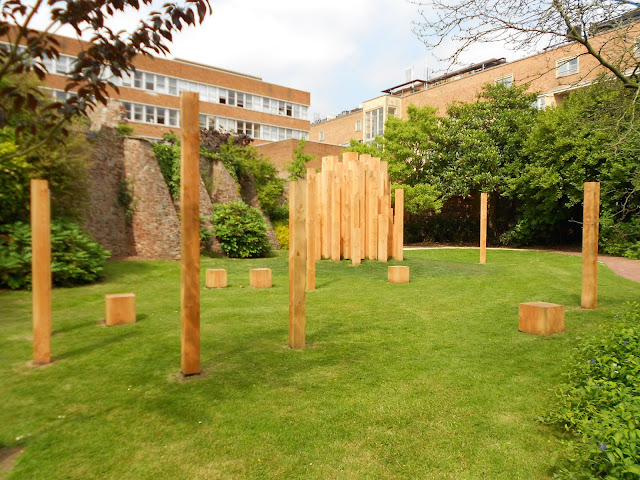It would probably be fair to say that I'm fascinated by different kinds of timber to the point of being a wood nerd, so I was very interested to hear about this art installation in the Royal Fort Gardens in Bristol.
These landscaped gardens, originally laid out by renowned designer Humphry Repton, are part of the University of Bristol. To celebrate the opening of the university's new Life Sciences building, it commissioned this permanent artwork from an organisation called Situations who worked with artist Katie Paterson and architects Zeller and Moye to create it.
'Hollow' consists of a Modernist-style shell made from Douglas fir timbers, which surrounds a space built from and containing pieces of wood from 10,000 different species of tree. These have come from almost every country in the world and include pieces of the banyan tree under which the Buddha found enlightenment and a ginkgo tree that survived the atomic blast in Hiroshima.
Light comes in through transparent panels above and there is only room inside for one or two people at a time. The entrance is quite narrow, so some people might find it difficult to get inside.
One thing that I noticed was how the wooden shell deadens sound outside the chamber. It is a very serene space. The pieces of wood aren't marked in any way to show what they are and where they are from, which I'd loved to have known but the mystery added to the atmosphere of the space. I wonder if there is a list of the timbers used online anywhere?
Even the floor of the space is made up of blocks, some of which are fossilised timbers that are over 390 million years old.
As I looked closer, more details became apparent. Above a visitor's head, the patterns of squared blocks shaped to let light through hide rough, unfinished pieces of wood in a partially hidden second layer.
This isn't the only large installation in these beautiful landscaped gardens. If you get the chance, it might be worth seeing it for yourself.








